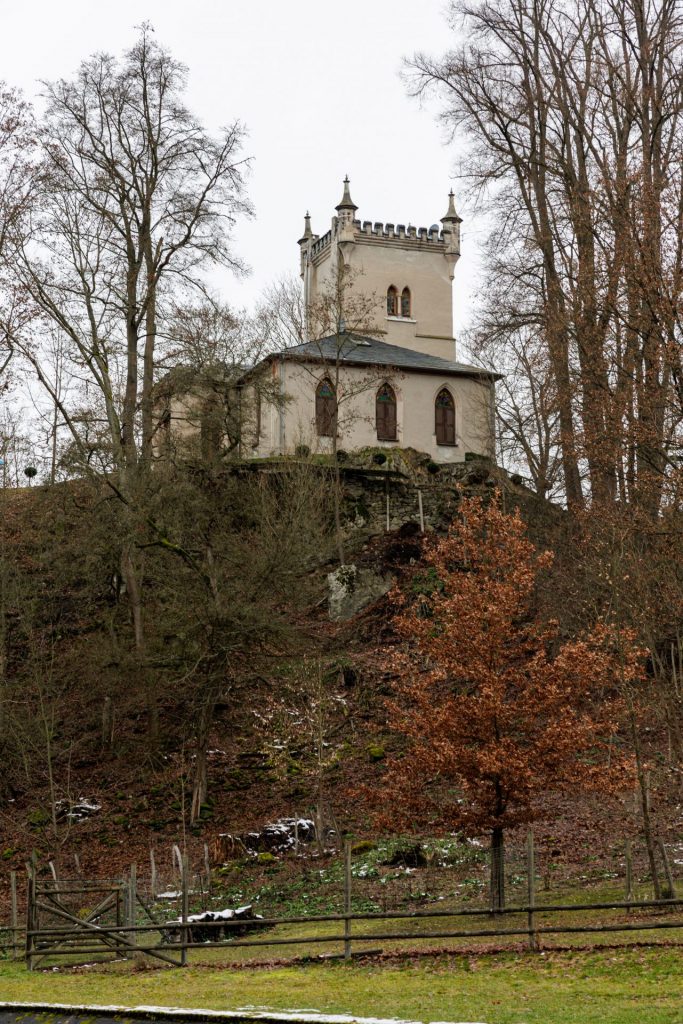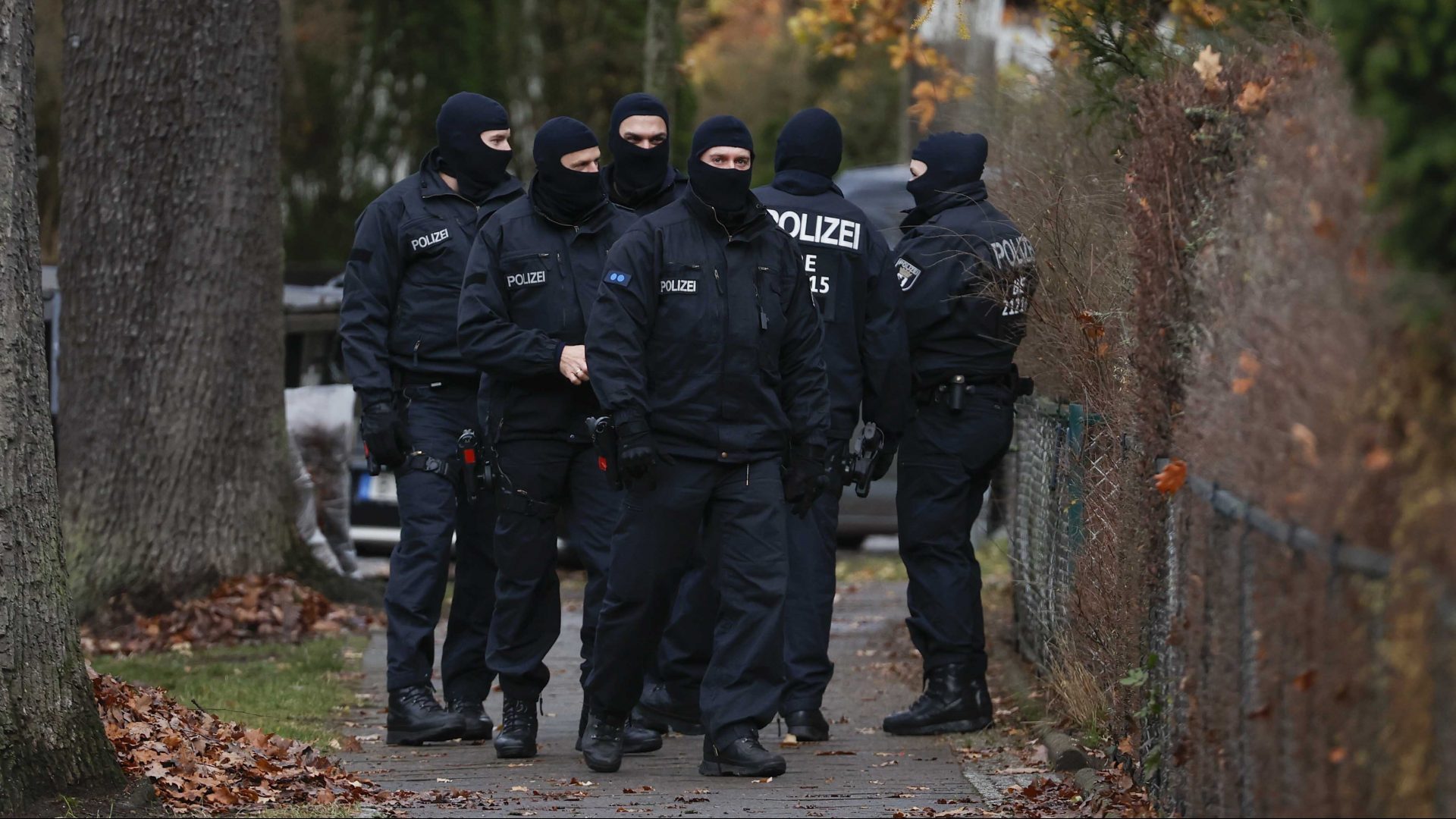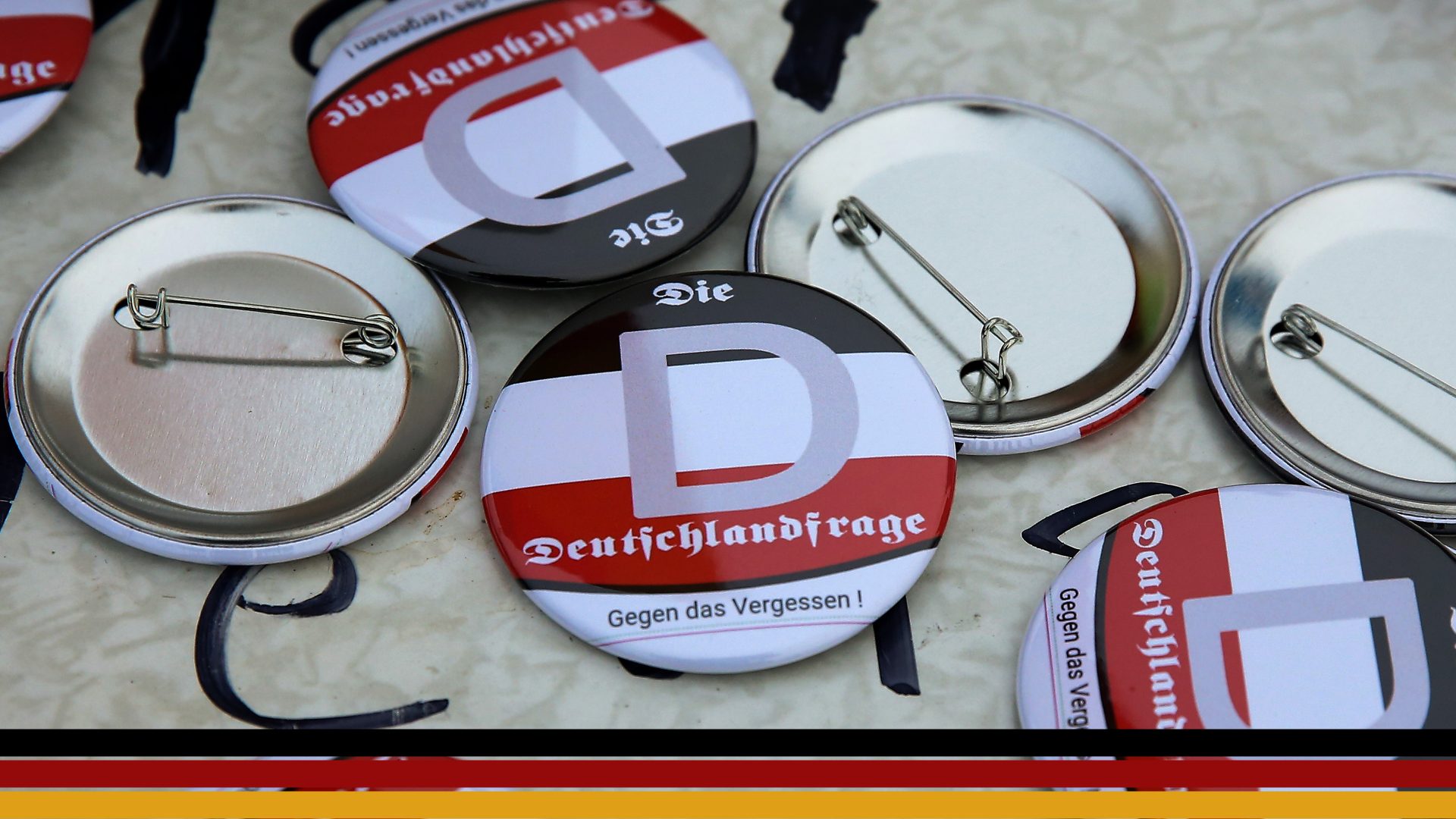One quiet Sunday evening in Leipzig in 2019, I was walking past the headquarters of MDR, the regional broadcaster for the eastern German states of Saxony, Saxony-Anhalt and Thuringia. I was with a local politician, one who didn’t directly identify with the far right Alternative for Germany, AfD, but who shared some of their views.
“Lügenpresse,” she shouted at the building as we passed. I stopped in my tracks; her fury had seemingly come out of nowhere. We weren’t even talking about politics at the time.
The term “lying press” was coined in 1914 to dismiss enemy propaganda. The Nazis used it to accuse Jews, left wingers and other cosmopolitan foreign forces of spreading false information. It was revived by Pegida, the virulent anti-immigrant citizen movement, in 2016.
I asked her what her problem was with the journalists at MDR. They never told the truth about “our women” being raped and assaulted, she asserted; they put out fake news all the time. Which specific stories had been hushed up and not reported? She simply shrugged her shoulders at each of my gentle prods and said, without elaboration, “It happens all the time.” This was a well-educated, well-informed woman. She had been a Green, part of the civil society movement that had protested against Communist dictatorship in the late 1980s. Now it was all about the “dark state”.
Post-1945 democratic Germany has never quite rid itself of elements with dangerous views. The 1960s and 70s brought left wing revolutionary terror to the streets, and later any foreign correspondent in search of a frontpage story could always find a small rabble in a small town bearing what looked suspiciously like Nazi insignia, smashing up a few shops after going on the lash. It was cheap journalism, because it inflated the importance of the story while pandering to stereotypes among readers back home. I did it several times.
This month’s theatrical police raids and the arrest of 25 individuals on suspicion of planning a “coup” has ramped up the volume to an extent not seen for decades. Is this hysteria or is it based on legitimate concern?
First the global: the extraordinary influx into Germany of more than one million refugees from the Middle East and Africa in 2015, and the arrival of Donald Trump, gave a massive boost to the self-belief of Germany’s alt-right. They could see that, if views such as his can prevail in “the land of the free”, then why not at home? Trump legitimised speech among some Germans that only a few years earlier would have been seen as entirely unacceptable. Viktor Orbán in Hungary and assorted right wingers in Italy then brought the phenomenon closer to home.

Then came the pandemic, conspiracy theories and the clash between a smothering state and the revival of ultra-libertarianism. Germans have always had a somewhat incongruous relationship with authority. They see it as a duty to conform in day-to-day obligations such as registering their place of residence and carrying identity cards (don’t get me started about their refusal, ever, to cross the street at the red man). At the same time, they hate anti-smoking laws, are suspicious of CCTV and credit cards, and refuse to share data on just about any aspect of their lives. Plus a significant number like to own guns and other weapons.
Even before Trump came on to the scene, well before the Brexit referendum was called and a populist wave was identified across the western world, Germany was in the throes of political violence. The first serious attack of this era began in 2015, within two months of the first migrants arriving at Munich railway station.
Henriette Reker was out campaigning in Cologne in the city’s mayoral elections when she was stabbed in the neck. She was deputy mayor, aligned to the Social Democrats but independent. Within her portfolio, she was in charge of refugee housing in the city. She had taken a strong pro-immigration stance. The assailant was an unemployed house painter with right wing connections, who shouted about an “influx of refugees” as he attacked her. In a moving show of solidarity, Reker was elected mayor the following day, with support from all the mainstream parties – even though she had been put in an induced coma. She recovered to take over a month later. The assailant was given 14 years in prison. Reker was re-elected in 2020.
In November 2017, Andreas Hollstein, the mayor of a small town called Altena, not far from Düsseldorf, was stabbed in the neck in a kebab shop. His town in North Rhine-Westphalia was well known for having accepted more than its assigned quota of migrants. Hollstein, who represented the conservative CDU party, survived thanks to the quick reactions of the two employees. He has since gone back to work and refused police protection. “There is no point in a local politician who is no longer accessible to the citizens he or she represents,” he said. Politicians in small towns and rural areas are seen as particularly vulnerable.
A terrible line was crossed in June 2019. Walter Lübcke, a civil servant in the state of Hesse, was shot in the head on the front porch of his home in a
village near Kassel. He too had been vocal in defending immigration, at one point telling an audience that people were free to leave Germany if they didn’t want to help integrate refugees.
The murder shocked the nation. Worse was to come when, in February 2020, a right wing gunman walked into two shisha bars late at night in the town of Hanau, near Frankfurt, and opened fire. He killed 11 people, then returned to his flat, shot his mother dead and committed suicide. On his website, he had posted the usual array of racist and misogynist rantings. He accused Trump of plagiarising his own material.
The then-interior minister, Horst Seehofer, declared that the threat from the far right was now greater than anything the left might produce and greater than militant Islam, which had been responsible for a number of terror attacks at Christmas markets and elsewhere.
One poll carried out for a TV documentary found that 50% of city government officials got hate mail or other threats. Around 8% of municipalities have reported assaults on local officials. Meanwhile, barely a month goes by without a migrant hostel being firebombed. The response of the AfD is usually to distance itself from each attack, while accusing mainstream politics and the media of exploiting such incidents to denigrate it – and of causing the problems in the first place.
An Interior Ministry report issued last May provided a detailed analysis of the level of threat posed. It identified 327 cases of far-right extremists working in law enforcement over a period between July 2018 and July 2021. More specifically, 138 of the confirmed cases were found in federal institutions, such as the armed forces, federal police and big intelligence agencies. The remaining 189 were found among agencies devolved to the states, or Länder, such as the police. “We will not allow our democratic constitutional state to be sabotaged from within by right wing extremists,” the interior minister, Nancy Faeser, said at the time.
The report brought to the fore the activities of the Reichsbürger movement – a full six months before this mega-plot was uncovered. Faeser was keen to draw attention to the threat; it made some headlines, but did not galvanise politicians or the public in the way it should have done. The wheels grind slowly in Germany and the “responsible” media has a tendency to play down stories for fear of being accused of hysteria.
Hence last week’s operation; 3,000 police officers and special forces fanning out across the country to raid 150 homes and arrest 25 suspected conspirators. They included an active duty soldier, a former officer in the KSK special forces, a police officer and at least two army reservists, plus a judge, a celebrity chef and a former AfD parliamentarian.
Selected journalists and TV crews were tipped off in advance to maximise the effect. It worked spectacularly well. Every aspect of the Day X plot to storm the Bundestag, arrest members of parliament, execute the chancellor and install a 71-year-old self-styled prince (Heinrich XIII of Reuss) in his place, was strange and spellbinding. To facilitate the coup, the electricity network would be sabotaged. Satellite phones to communicate off-grid had already been bought.
These people had form. In April, police arrested four people who had been plotting to kidnap the health minister, Karl Lauterbach, and cause nationwide power outages. The authorities said then that the suspects were linked to the Reichsbürger and anti-vaccine movements.
They went after Lauterbach for a reason. A rare example of a politician with specialist expertise, he was one of Germany’s most prominent epidemiologists before entering parliament. In the first two waves of Covid-19, as Angela Merkel’s chief adviser he was a daily fixture on television and in social media, often cautioning against the negative effects of premature relaxation of restrictions.
If not a clash of civilisations, this is a clash of outlooks. Germany is a state that relies on public goodwill, communitarianism and no little conformism. Risk aversion is hard-wired into all aspects of public life. In many regions, including in Berlin, mask-wearing is still mandatory on public transport. From the football pitch to polishing the bannisters of the apartment block, citizens are invited, or rather required, to do the right thing. The word mitmachen doesn’t translate well into English. The best attempt is “participate”.
What happens when an increasing number – well-heeled or not, educated or not, left-behind or not – decide they don’t want to participate, preferring to indulge in the faux certitudes of QAnon and its likes?
Germany’s domestic intelligence agency, the BfV, estimates that there are now about 13,500 right wing extremists prepared to use violence to achieve their objectives.
The group of those arrested last week has its absurd elements. Yet they had apparently twice missed dates when they had aimed to trigger their attack. Many were heavily armed. The potential for serious violence was considerable; a potential terror attack that could have caused extensive destruction was foiled.
This does not correspond to a threat to the fabric of society, but it will require the authorities to be far more vigilant and decisive than they have been up to now. Expect more arrests, more raids.
Sadly, we can expect more terror attacks from people who have decided that the rules-based order and multi-party democracy are the enemy within.




